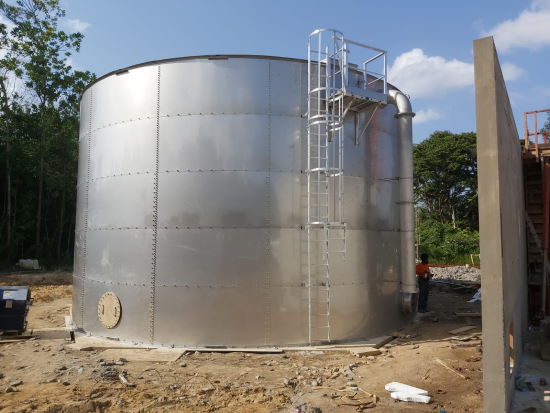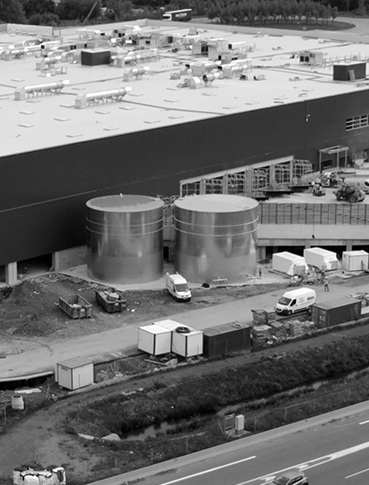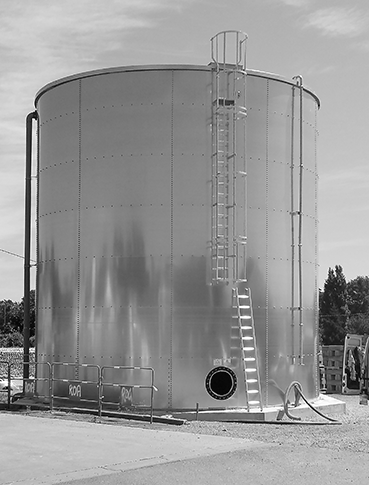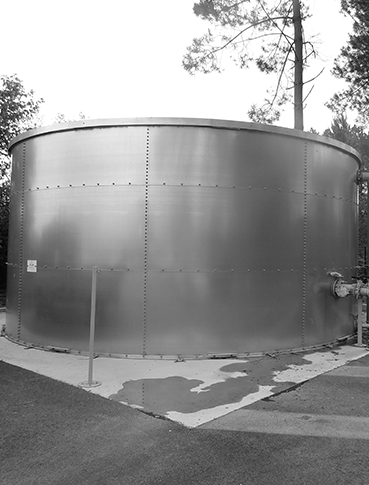STAINLESS STEEL TANK
FM TANK's experience in metal tanks has led us to meet requests from sectors such as the food processing industry which are subject to large numbers of standards.
As a manufacturer and installer for this type of activity, we use a specific metal: stainless steel.
Over time, food contact and hygiene standards have imposed the use of this type of steel to guarantee neutrality regarding foodstuffs (wine, oil, water, etc.)
Such stainless steel tanks are also used in many other sectors for water or effluent storage.
We therefore offer our customers a tailor-made range of liquid storage solutions that require corrosion resistance and which must not deteriorate into rust.
For potable water specifically, French legislation requires that watertightness be provided by a membrane that is health department approved..
These stainless steel tanks are used in sectors such as the chemical industry, agriculture and wine production.
However, the compatibility of stainless steel with certain chemicals must be validated beforehand.
Focus on stainless steel
Stainless steel is steel containing more than 10.5% chromium.
The added chromium gives it a major advantage: long-term corrosion resistance.
When chromium is thus present in the matrix of the steel, it produces chromium oxide, which creates a protective layer that gives it its corrosion-proof properties.
Other elements can be added to this alloy to improve its ductility (ability of a body to resist failure when stretched), for example nickel can be used to achieve this superior capacity.
If this steel is used in environments that are subject to significant temperature differences, titanium or molybdenum can be added to the alloy to improve its stability.
The last possible case is the need for flame resistance or the need to withstand very high temperatures.
In that case, tungsten (or even vanadium) will be required.










